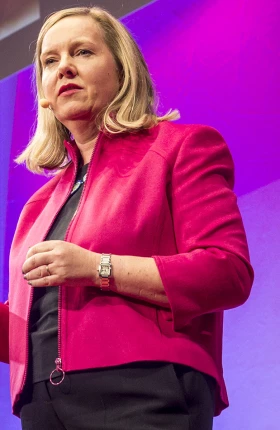The Boston Consulting Group recently had the privilege of hosting the Women in Parliaments Latin America Reunion 2014 in São Paulo, Brazil. The theme of the conference was how to improve the rates of participation and representation of women in the political, economic, and social arenas. Latin America has one of the highest proportions of female representatives in government—24 percent—and Ecuador alone has 42 percent. But a review of the current landscape both in Latin America and globally indicates that too few women are fulfilling their potential for success in politics, business, and society.
The goal of the conference was to share ideas and advice, and although the meeting focused on Latin American women in politics, the issues raised and the stories told would resonate with women in virtually any country, in any profession. As BCG senior partner André Xavier noted, “Equality of gender is a key twenty-first-century subject. Advancing the condition of women is an urgent need in the entire world.”
At the Women in Parliaments event, we discussed a number of ways to drive improvement.
More Women Leaders
The most important way to prompt change, we agreed, is to reach a critical mass of female leaders. It struck us that some of the issues facing aspiring female leaders in the private sector—such as gender bias (whether real or perceived), being treated with a lack of respect, finding the right balance between work and family, making sure one’s voice is heard—are amplified for women in politics. Making matters worse, the struggles of female politicians typically occur in the public spotlight, where criticism can be especially disheartening.
In our work, we have seen how the numbers of inspiring female leaders in business are increasing in several countries as more women sit on boards and have the power to make real operating changes. At the conference, a group including Jô Moraes, a member and coordinator of the women’s caucus in Brazil’s House of Representatives, discussed the pros and cons of passing legislation in order to address inequality in politics.
Mexican senator María Lucero Saldaña noted that women in Mexico achieved a great victory in 2014 when the country established constitutional parity between women and men in nominations for the country’s House of Representatives and Senate. More challenges clearly remain, however: though there have been discussions about drafting legislation to guarantee at least one woman on the legislative steering committee, no action has yet been taken.
In Argentina, people vote for parties rather than individual candidates. Patricia Gimenez, a congresswoman in that country, described how each party has a set list of candidates, and how—by law—the lists must include at least one woman for every two men. This has helped women make great strides in Argentina over the past 30 years. Only 5 percent of the country’s representatives were female in 1983, compared with over 35 percent today.
The BCG article entitled “ New Leadership Rules ” (May 2010), emphasizes the need for leaders to have several important traits in today’s uncertain and ambiguous world. These include the ability to understand perspectives that differ from their own and to build networks with people beyond their immediate circles. The article also discusses the need for leaders to question the status quo, be willing to reexamine their environments, and revisit their own personal and long-held assumptions about what leadership and success mean. Since female leaders tend to encourage this type of thinking, having a more diverse set of leaders is crucial.
More Participation
Around the world, women in business have made progress in terms of the rates of their participation in the work force (rising from 54 percent in 2000 to 57 percent in 2012) and their representation as entrepreneurs (climbing from 35 percent of businesses in 2004 to 41 percent in 2011). (See Gender Gaps in Education, Employment, and Health Care: What Can Be Done in a Decade? , BCG Discussion Paper, October 2014.) But Mexico’s ambassador to Brazil, Beatriz Paredes Rangel, pointed out that having a critical mass of women in leadership is only part of the equation. Drawing on her experiences as governor, Rangel feels that higher participation by women throughout the political process would further increase the status of women. Though some Latin American countries have passed laws that protect women’s rights, extend maternal leave, and allow for more flexible working hours, for example, Rangel believes that with greater participation by women in the political process, even more could be achieved. She also suggested that female participation and empowerment could be increased through education—in particular, by providing scholarships in science, mathematics, and engineering. The group discussed how participants in politics, education, business, and society can all mutually reinforce one another.
More Support
A final discussion point highlighted how women need to support each other at all levels to achieve greater progress. As the conference attendees noted, there are opportunities for women to improve the way they network and help each other. We’ve heard the same feedback from female executives in the corporate world. “There is a proven link between the progress of women and economic benefits to society,” concluded Xavier, echoing an observation by Michelle Bachelet, the president of Chile, who noted that countries and companies with higher levels of equality have higher levels of growth and profits.
The experiences, dreams, and goals of the participants in São Paolo made it very clear that women leaders are exactly what both politics and business need more of.







